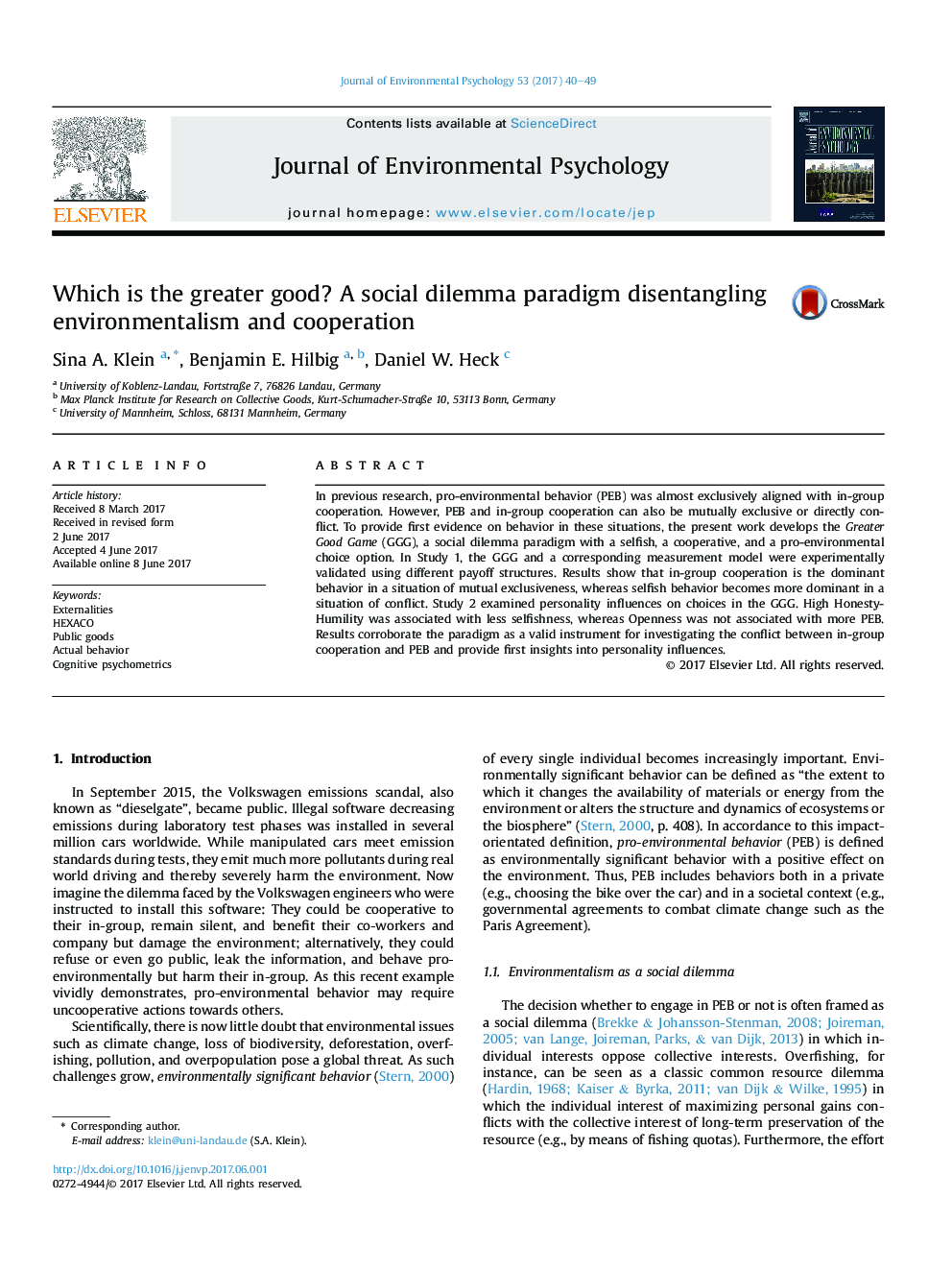| Article ID | Journal | Published Year | Pages | File Type |
|---|---|---|---|---|
| 5034875 | Journal of Environmental Psychology | 2017 | 10 Pages |
â¢Environmentalism and in-group cooperation can be mutually exclusive or conflict.â¢We develop and validate a social dilemma to investigate these situations.â¢In-group cooperation is the dominant behavior in situations of mutual exclusiveness.â¢Selfish behavior is the dominant behavior in situations of direct conflict.â¢Honesty-Humility predicts un-selfish behavior in the social dilemma.
In previous research, pro-environmental behavior (PEB) was almost exclusively aligned with in-group cooperation. However, PEB and in-group cooperation can also be mutually exclusive or directly conflict. To provide first evidence on behavior in these situations, the present work develops the Greater Good Game (GGG), a social dilemma paradigm with a selfish, a cooperative, and a pro-environmental choice option. In Study 1, the GGG and a corresponding measurement model were experimentally validated using different payoff structures. Results show that in-group cooperation is the dominant behavior in a situation of mutual exclusiveness, whereas selfish behavior becomes more dominant in a situation of conflict. Study 2 examined personality influences on choices in the GGG. High Honesty-Humility was associated with less selfishness, whereas Openness was not associated with more PEB. Results corroborate the paradigm as a valid instrument for investigating the conflict between in-group cooperation and PEB and provide first insights into personality influences.
